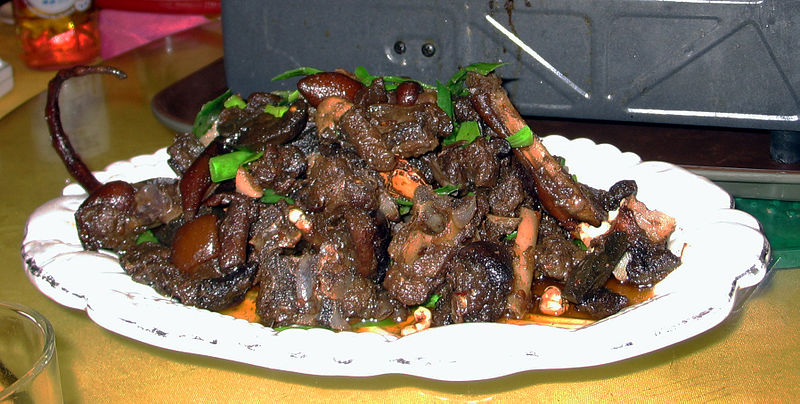
June 28, 2014, by Tony Hong
Cruelty or culture?
By Dr. David O’Brien,
Assistant Professor, School of Contemporary Chinese Studies,
The University of Nottingham Ningbo China.
China’s animal right’s activists were on the march this week as opposition continues to grow towards an age-old custom.
A small but vocal group of protestors travelled to the city of Yulin, in southern Guangxi to protest the mid-summer tradition of eating dog meat.
Every year, the city hosts a rollicking celebration where locals and tourists feast on dog meat washed down with copious amounts of grain alcohol.
The festival celebrates a local tradition of eating dog meat hotpot, lychees and drinking strong liquor on the summer solstice, although the current festival only dates back to the mid-1990s.
It is China’s only dog easting festival. In 2011, a 600-year-old dog meat festival in Zhejiang was abandoned after successive years of increasing protest.
While the numbers protesting in the town were small, online outrage was everywhere.
“Dogs are more loyal to people than I’d imagined – I think of dogs as friends, not meat,” the actor Yang Mi wrote to her 35 million followers. The message attracted more than 75,000 comments, most commending her for taking a stand.
It was quickly picked up by the international media who sent reporters to the scene who found locals bemused by all the fuss.
“This is our tradition and we are used to eating dog. It’s our culture and we won’t change … It’s tasty! But we won’t kill our pet,” one Yulin butcher told CNN
Official reaction was muted, although the local government stressed that it was not involved in organising the festival.
China Daily though pointed out that the Yulin government has put out a logo for the festival on the city’s streets.
The state media were perhaps more concerned by the fact that dog meat is not subject to any regulation, unlike beef, lamb or pork.
Article 28 of the Food Safety Law of the People’s Republic of China says, “It is forbidden to produce or engage in the business operation of meat that has not been quarantined by the animal health inspection institution or has failed the quarantine, or meat products that have not been inspected or have failed the inspection”, China Daily reminded readers.
By the end of the week the Wall Street Journal was reporting that the huge publicity generated by the festival had sent the cost of dog meat skyrocketing.
“I bought raw dog meat at 26 yuan (per kilogram) last year and this year it went up to 40 yuan,” one resident told the paper.
The Economist pointed out that locals were asking why is eating dog so different from eating cows or China’s favourite meat, pork?
In attempting to answer this, it speculated that “the difference has less to do with the arguably arbitrary hierarchy into which humans sort animals into food and non-food, and more to do with rising incomes.
“Between 2000 and 2012 there was a 35% jump in pet ownership, according to Euromonitor International, a market research firm. Today some 33m households keep a cat or dog.”
China’s new middle class are clearly developing new tastes, which may be good news for man’s best friend – but the people of Yulin seem determined to continue to do as they always have.
No comments yet, fill out a comment to be the first

Leave a Reply